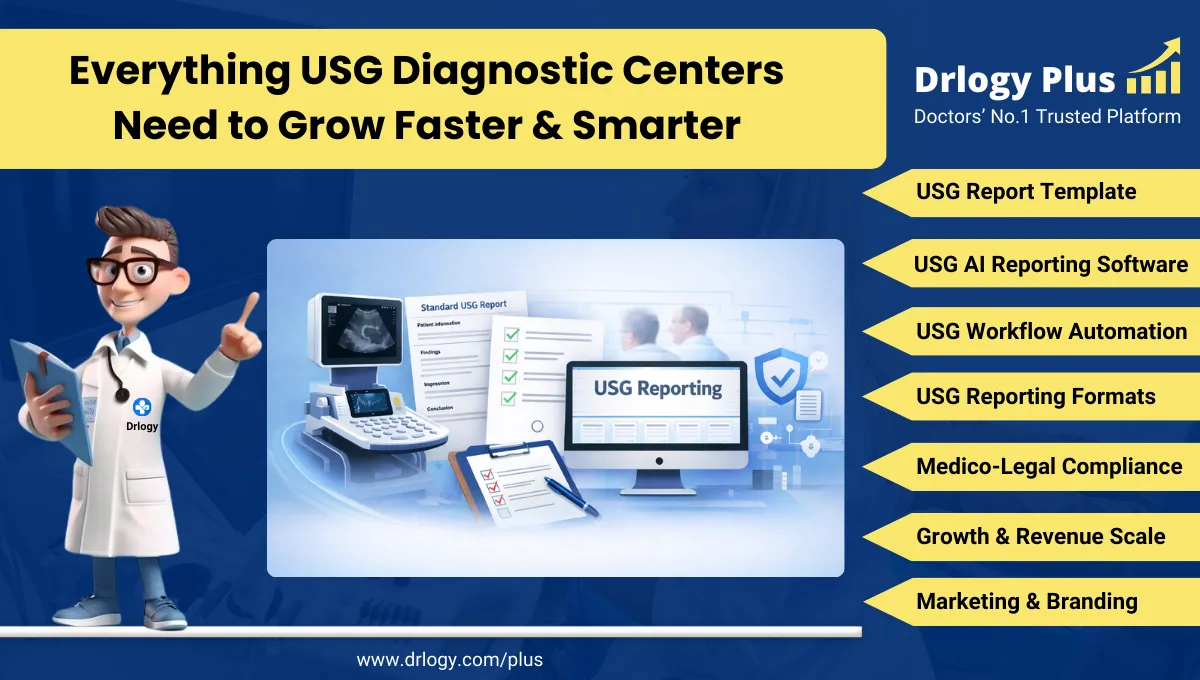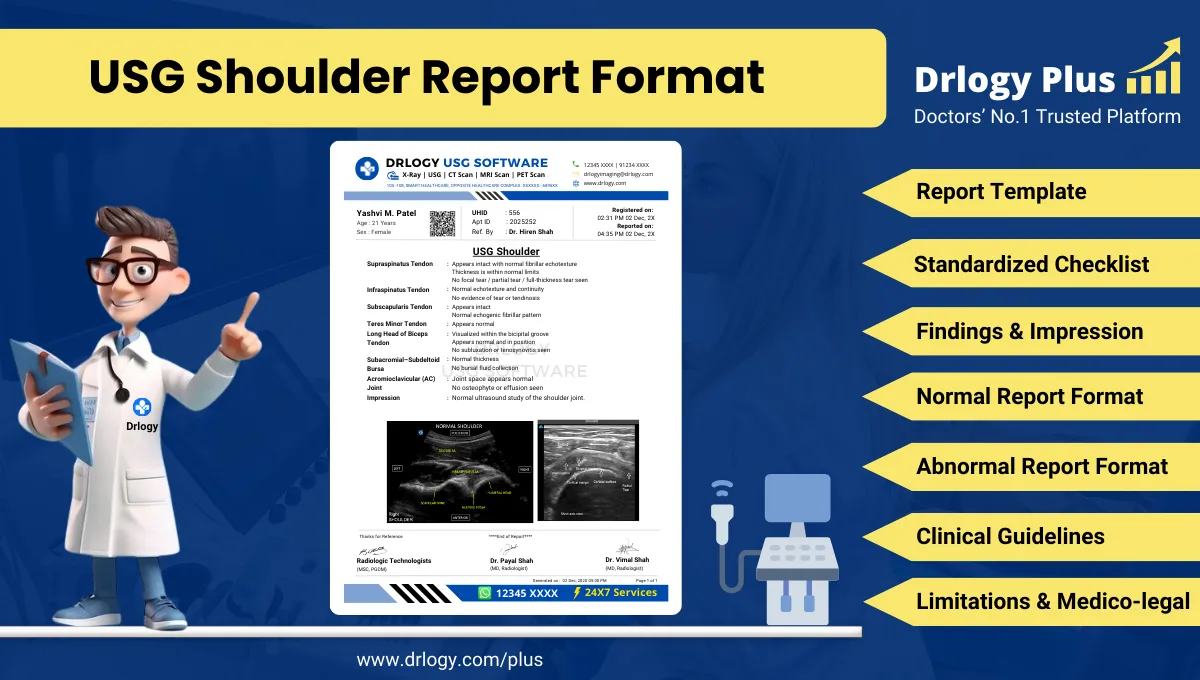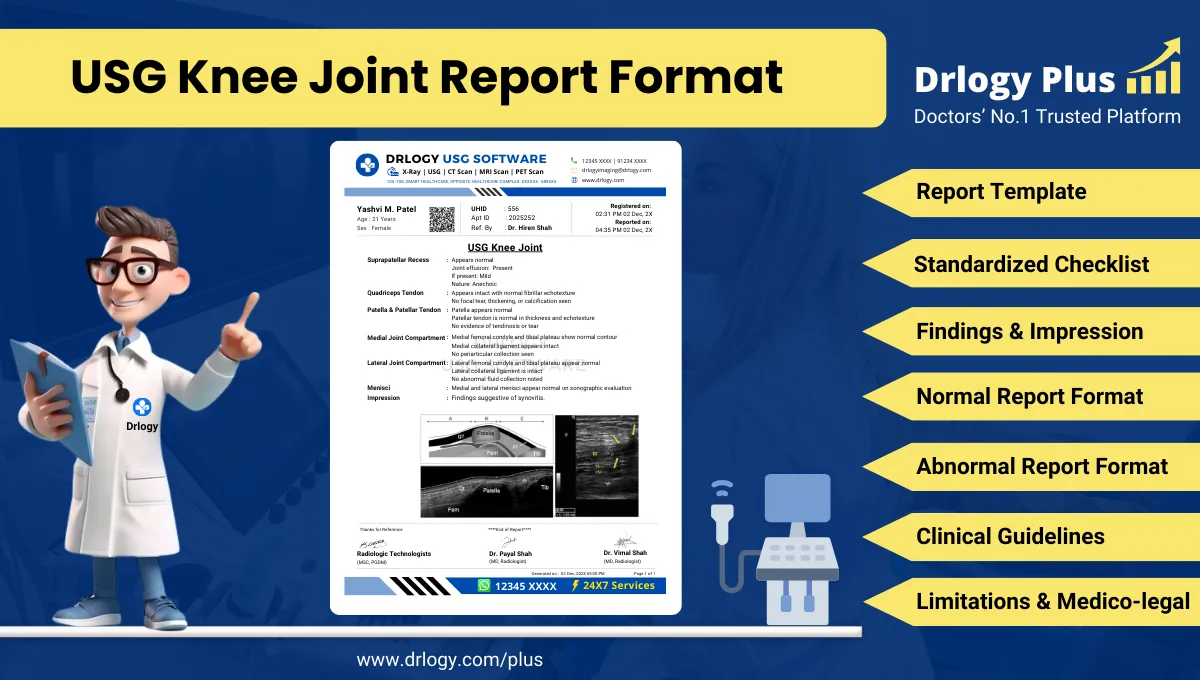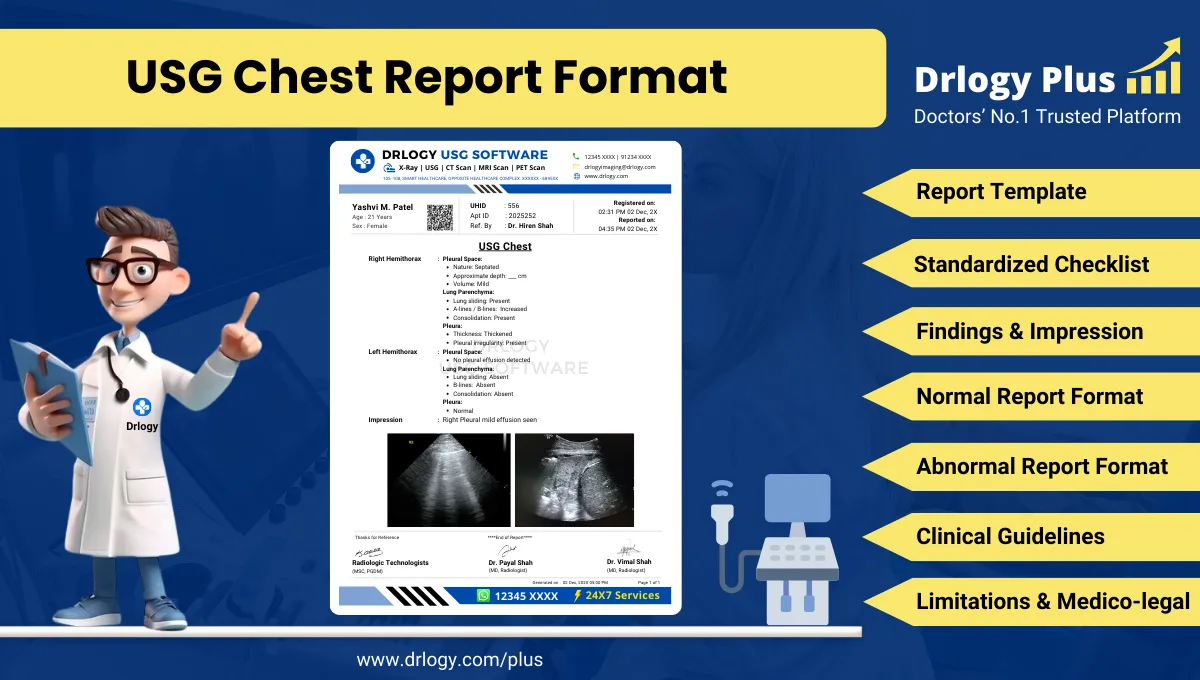

Drlogy
Healthcare organization
Aldolase Test Report Format: 10 Key Clinical Guidelines & Example
In medical laboratories, the Aldolase Test Lab Report serves as a critical diagnostic tool for assessing muscle health and detecting conditions affecting skeletal muscles and organs. This report meticulously details the levels of aldolase enzyme in the blood, shedding light on potential muscle damage or diseases like muscular dystrophy.
Its significance lies in aiding healthcare professionals to diagnose, monitor, and manage muscle-related disorders. With a concise yet comprehensive format, the Aldolase Test Lab Report is instrumental in providing crucial insights that inform treatment strategies and contribute to the overall patient care continuum.
10 Key Aldolase Test Report Format Clinical Guidelines
Below are the 10 key clinical guidelines for formatting a Aldolase Test report in your pathology laboratory.
1. Patient Information:
- Include patient's full name, age, gender, and any relevant demographic details.
- Verify patiententity through official documents or hospital records.
- Ensure accuracy in recording personal information to prevent errors in test results.
- Clearly communicate the importance of correct patient data for result interpretation.
- Highlight the significance of confidentiality in handling patient information.
2. Reference Doctor Information:
- Capture details of the referring doctor, including name, contact information, and medical credentials.
- Utilize official reference doctor letterhead for authenticity and traceability.
- Emphasize the collaborative nature of healthcare partnerships between labs and referring physicians.
- Provide a dedicated section for additional comments or specific instructions from the referring doctor.
- Encourageect communication channels for any queries or clarifications.
3. Specimen Information:
- Clearly label specimen containers with patient name, date of collection, and uniqueentification numbers.
- Specify the required volume for the aldolase test and provide guidelines for proper sample collection.
- Ensure accurate and detailed specimen information to prevent pre-analytical errors.
- Highlight the importance of proper specimen handling to maintain sample integrity.
- Include specific instructions for transporting and storing specimens.
4. Test Name Heading, Test Methodology:
- Clearly state the name of the aldolase test at the beginning of the report.
- Provide a brief description of the test methodology employed in the laboratory.
- Educate healthcare providers on the significance of the aldolase test in muscle-related assessments.
- Offer concise information on the biochemical principles underlying the test procedure.
- Ensure transparency in reporting to enhance medical professionals' understanding.
5. Test Result:
- Present aldolase test results in a clear, organized format.
- Emphasize the importance of accuracy and precision in result reporting.
- Provide both numeric values and any qualitative interpretations when applicable.
- Include units of measurement for clarity and standardization.
- Highlight the potential impact of abnormal results on patient management.
6. Normal Value Reference:
- Clearly define the normal reference range for aldolase levels in the population.
- Educate healthcare providers on the significance of deviations from the normal range.
- Emphasize the of normal value reference in interpreting test results.
- Update reference ranges based on demographic factors when necessary.
- Ensure consistency with established medical guidelines.
7. Interpretation & Instrumentation:
- Offer a section for interpreting aldolase test results in the context of patient health.
- Describe the instrumentation used in the laboratory for aldolase analysis.
- Emphasize the reliability and precision of the instrumentation employed.
- Provide additional insights into potential clinical implications of aldolase levels.
- Encourage collaboration between laboratory professionals and healthcare providers for result interpretation.
8. Signature and Date:
- Require authorized signatures from laboratory personnel for result validation.
- Include the date of result issuance to ensure timeliness and relevance.
- Reinforce the importance of signature authenticity in the report.
- Promote accountability and traceability through signed documentation.
- Clearly communicate the of signatures in legal and ethical compliance.
9. QR Code Authenticity and Barcode:
- Implement QR codes for quick and secure verification of report authenticity.
- Utilize barcodes for efficient tracking and record-keeping.
- Encourage healthcare providers to use scanning technology for expedited access to patient reports.
- Highlight the of QR codes and barcodes in preventing data tampering or manipulation.
- Provide guidelines on proper scanning procedures for optimal use.
10. Diagnostic Laboratory Details:
- Include comprehensive details about the diagnostic laboratory, such as name, address, and contact information.
- Specify accreditation and certification status to enhance trust and reliability.
- Emphasize the commitment to adherence to national and international standards.
- Communicate the laboratory's mission and commitment to patient care.
- Provide information on additional services or specialties offered by the laboratory.
Also Check
Drlogy Plus For Complete Digital Solutions for Doctors, Clinics, Hospitals & Labs to Enhance Patient Experience
Aldolase Test Report Format Sample
Aldolase Test Report Format
Here is a Aldolase test report PDF format, highlighting its significance in the pathology laboratory.
Drlogy Pathology lab software plays a pivotal in ensuring a Aldolase Test Report Format. Additionally, Pathology lab software automates many aspects of the testing process, from sample handling to data analysis. Drlogy Pathology Software provides healthcare providers with real-time access to Aldolase test results, enabling timely decision-making and faster patient care.
Referred
Conclusion
- In conclusion, a meticulously structured Aldolase Test Report is indispensable for accurate diagnosis and effective patient care. By adhering to these guidelines, medical laboratories ensure precise communication of vital information, aiding healthcare professionals in evaluating and managing muscle-related disorders.
- This standardized format not only enhances result interpretation but also contributes significantly to the overall importance and reliability of the aldolase test in clinical practice.
- Drlogy Plus For Complete Digital Solutions for Doctors, Clinics, Hospitals & Labs to Enhance Patient Experience.
Reference





